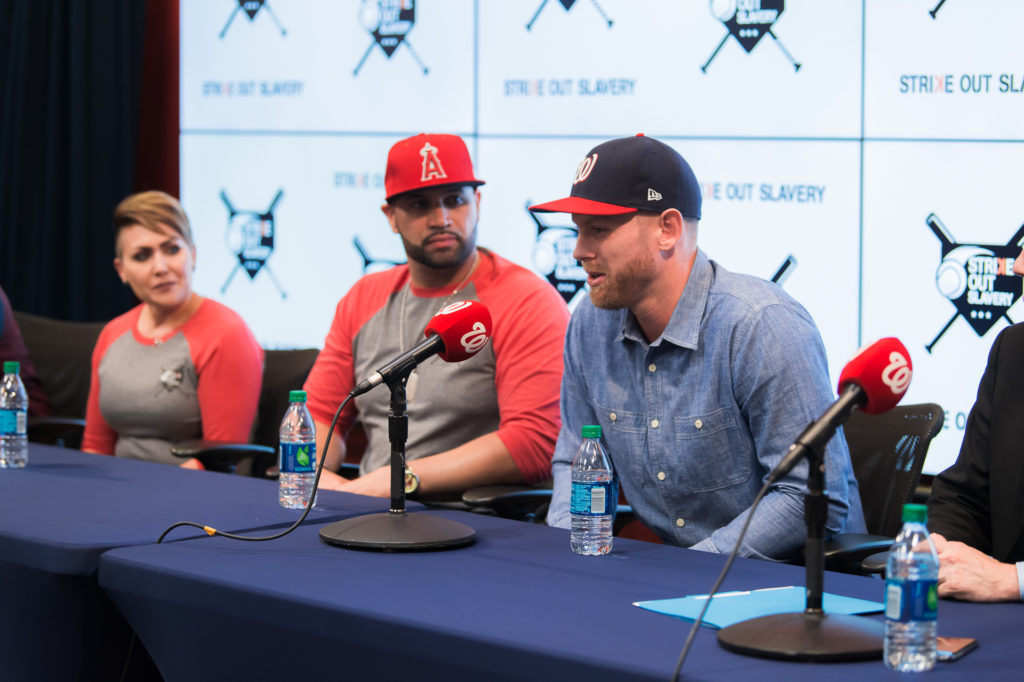
[Excerpt from DCist]
Stacy Jewell Lewis was walking home one night on Minnesota Avenue in Southeast, being followed by a group of men, when an older gentleman pulled over and offered her a ride.
She thought the man in the car, who looked to be about 70, was the better of two bad options.
But the man had been paid by traffickers. Lewis, 19 at the time, was taken from her home in Washington D.C. to New York City and forced into sex slavery.
Now telling her story as a survivor of slavery, Lewis has found an ally in, of all things, baseball. The “Strike Out Slavery” campaign, debuting this August in Washington, is aimed at educating fans of America’s pastime about human trafficking—and how terribly common it is.
While estimates vary greatly among advocacy organizations, the Global Slavery Index estimates that 40.3 million people around the world live in modern slavery, trafficked either for labor or sex. In the United States, the group estimates that close to 403,000 people are being trafficked right now.
“As I traveled the world, I began to see that human trafficking affects the whole planet,” said Deidre Pujols, who founded the organization last year with her husband, Angels first baseman Albert Pujols. “And I began to think about our platform in baseball. I felt like this issue was so tremendous that we should take it to Major League Baseball.”
They did, first to the Angels Stadium in Anaheim in 2017—and now to the Washington Nationals this August.
On a panel Monday at Nationals Park, the Pujols sat alongside Lewis, Nats pitcher Stephen Strasburg, singer Nick Jonas, and Polaris Project director Bradley Myles, whose organization works to put a stop to modern slavery.
“One of the biggest myths we combat every day is that trafficking isn’t happening here in the U.S.,” Myles said.
The Polaris Project reports that calls and texts to its national hotlines have increased steadily over the past few years. Still, less than 1 percent of trafficking victims are rescued, according to A21, an advocacy group for “abolitionists of the 21st century.”
…




